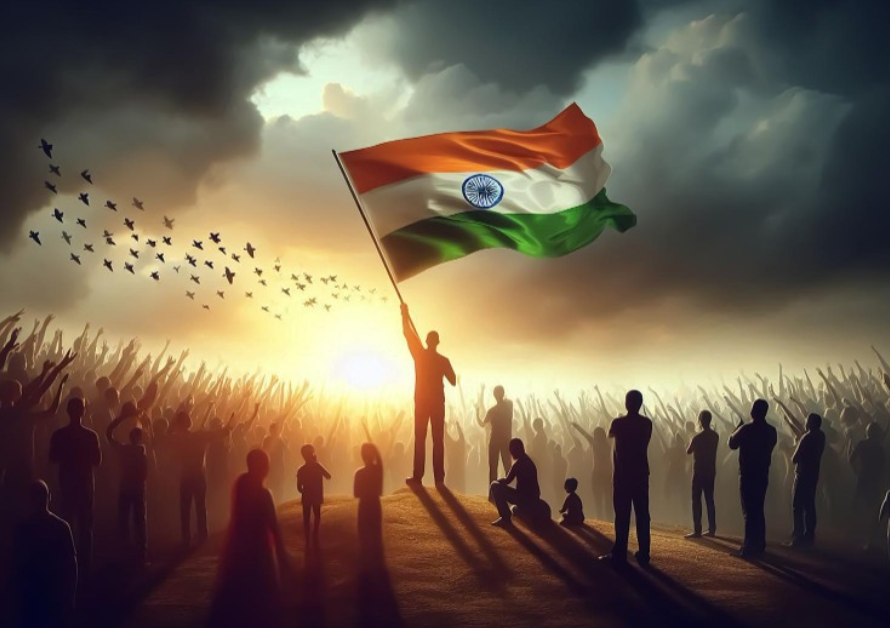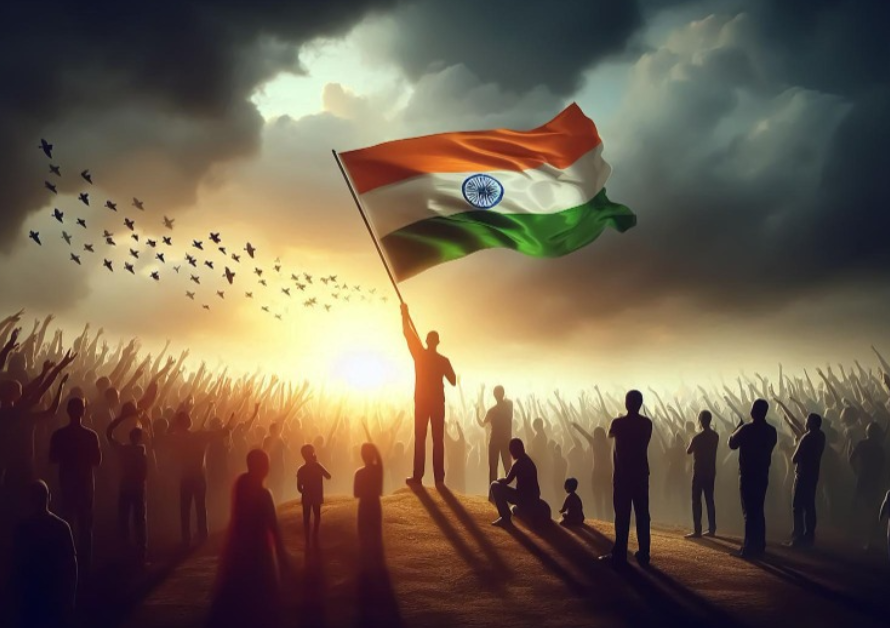The idea of connections between anti-national elements and the “deep state” often emerges in political narratives to explain actions, policies, or inaction that seem detrimental to national interests. The term “deep state” refers to a shadowy network of influential bureaucrats, politicians, corporations, media, and foreign entities that operate behind the scenes to influence or control state policies for their own interests.
Below are some alleged examples of how opposition leaders in India might have connections or interactions with such influences:
Involvement with Foreign Powers
Example:
Allegations have been made that some opposition leaders have engaged with foreign powers or NGOs to gain political or financial support, sometimes at the cost of India’s national interests.
Case Study: The funding of NGOs like Amnesty International, often linked to political leaders, has been scrutinized for supporting narratives that allegedly undermine India’s sovereignty, such as those concerning Kashmir or minority issues.
Implication: Critics argue that this undermines India’s global standing by aligning with foreign entities pushing anti-India agendas.
Role in Undermining National Security
Example:
Opposition leaders have been accused of downplaying threats from terrorist organizations or separatist groups, allegedly to secure minority votes.
Case Study: The alleged “soft stance” on cross-border terrorism and Maoist insurgency during certain governments has been attributed to pressure from leftist intellectuals or international advocacy groups.
Connections with Corporates and Media Houses
Example:
Opposition leaders have often been linked with influential corporates and media houses that propagate narratives favoring specific agendas.
Case Study: Certain industrialists are rumored to fund opposition campaigns or manipulate public opinion through media to destabilize government initiatives like Make in India or Atmanirbhar Bharat.
Resistance to Strategic National Projects
Example:
Delays or opposition to key national projects like defense acquisitions, infrastructure development, or counter-terror laws have been linked to deep state influences.
Case Study: During UPA rule, allegations of corruption in defense deals (like AugustaWestland) raised concerns about international lobbies and the involvement of political leaders in undermining defense preparedness.
Use of Religious and Caste Divisions
Example:
Opposition leaders have been accused of aligning with radical groups or endorsing divisive policies to fragment the Hindu vote base.
Case Study:
Leaders attending events organized by groups allegedly linked to radical Islam have sparked controversy.
Support for organizations like PFI (Popular Front of India) by some opposition leaders is seen as a threat to national unity.
Involvement in Anti-National Protests
Example:
Some opposition leaders have been criticized for supporting movements perceived as anti-national, such as Shaheen Bagh or the Farmer’s Protest.
Case Study:
Accusations that foreign-funded NGOs and international advocacy groups were involved in organizing these protests, with tacit or overt support from opposition leaders.
Encouraging Separatist Narratives
Example:
Allegations of opposition leaders engaging with separatist leaders in Kashmir, Punjab (Khalistan), and the Northeast have surfaced.
Case Study:
Reports of opposition leaders meeting with Hurriyat leaders or opposing the abrogation of Article 370, claiming it undermined minority rights, were viewed as playing into separatist hands.
Opposition to Nationalistic Policies
Example:
Resistance to policies like CAA (Citizenship Amendment Act), NRC (National Register of Citizens), and farm laws was linked to alleged international deep-state strategies to destabilize India’s progress.
Case Study:
Alleged links between opposition leaders and international human rights organizations opposing CAA led to accusations of prioritizing foreign narratives over national security concerns.
Role in Economic Subversion
Example:
Opposition to reforms like demonetization or GST is often attributed to pressure from corrupt corporates or international monetary lobbies.
Case Study:
Allegations of opposition leaders being influenced by black-market operatives or foreign corporations to resist reforms aimed at formalizing the economy.
Media and Propaganda Machinery
Example:
Opposition leaders are often accused of controlling or benefiting from media houses that amplify anti-government narratives.
Case Study:
International reports by organizations like Freedom House or V-Dem criticizing India’s democratic credentials often cite opposition leaders’ narratives, suggesting coordination with foreign interests.
Key Implications of Deep-State Ties
National Security Threats: Undermining of counter-terrorism and defense preparedness.
Destabilization: Increased internal unrest through protests and divisive policies.
Economic Disruption: Resistance to reforms and promotion of corruption-driven economies.
Global Reputation Damage: Use of international platforms to criticize India, affecting its diplomatic standing.
While evidence often remains circumstantial or speculative, the recurring accusations highlight the potential risks of deep-state influences in Indian politics. Vigilance, transparency, and public accountability are essential to ensure that national interests are prioritized over political or external agendas.
For more blogs please visit www.saveindia108.in and to join our whatsapp group please click https://chat.whatsapp.com/HxGZvlycYPlFvBO17O3eGW







